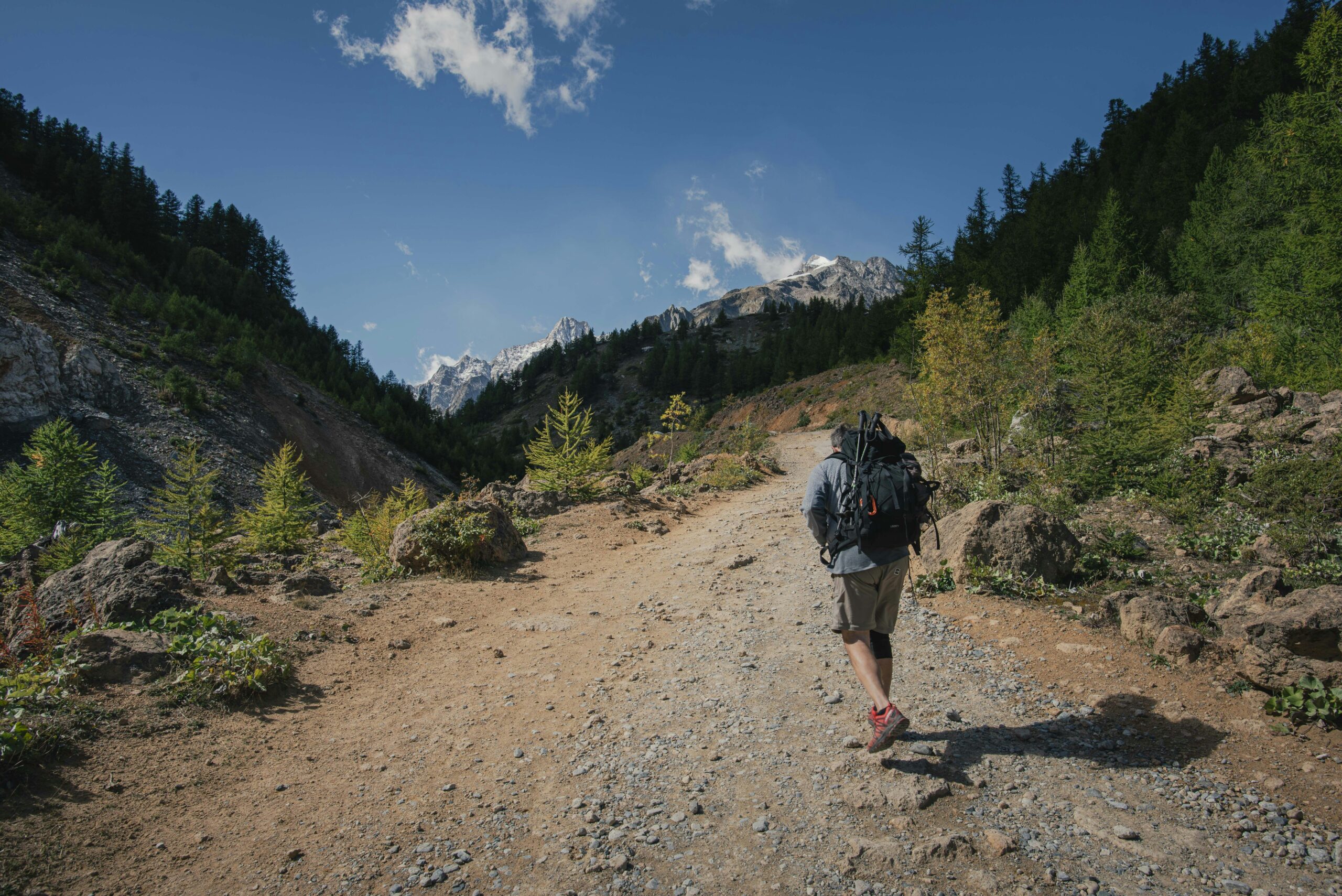
Life today is often fast-paced, demanding, and overwhelming. Between work, family obligations, and constant digital noise, many of us feel worn out and disconnected. While gyms and wellness routines can help, one of the most straightforward, most effective, and advantageous practices is often overlooked: hiking. Walking the trail doesn’t just strengthen muscles—it restores energy, heals the mind, and offers a sense of peace that few other activities can match.
Strengthening the Body Naturally
Hiking is a dynamic workout that engages your entire body. Trails rarely offer flat, predictable paths. Instead, they include slopes, rocks, and uneven surfaces that force your muscles to adapt. Climbing uphill strengthens the legs and lungs, while descending builds stability and balance. Carrying a backpack engages the shoulders and core, transforming a simple walk into a full-body workout.
Beyond physical strength, hiking improves cardiovascular health by keeping your heart rate elevated in a manageable, steady rhythm. Regular hikes can lower blood pressure, strengthen bones, and support long-term mobility. Unlike repetitive gym sessions, the variety of terrain keeps the body challenged and the activity enjoyable, ensuring consistency over time.
Clearing the Mind and Finding Focus
Mental exhaustion is one of the most common issues in modern life. Too many tasks, too much information, and constant interruptions leave the brain feeling cluttered. Hiking provides a natural reset. The steady pace and rhythmic motion calm the nervous system, allowing thoughts to flow more freely.
This mental clarity is more than relaxation—it’s scientifically supported. Studies reveal that spending time in nature improves memory, sharpens concentration, and enhances cognitive performance. Many hikers find that problems that seemed overwhelming at home feel manageable after a few hours on the trail. Hiking doesn’t just rest the mind—it recharges it.
Relieving Stress and Balancing Emotions
Stress affects not only the mind but also the body. It contributes to poor sleep, muscle tension, and long-term health risks. Hiking directly counteracts stress by lowering cortisol, the body’s stress hormone, while releasing endorphins, which naturally boost mood.
But beyond biology, hiking’s emotional benefits are deeply human. Standing at a lookout, listening to a river, or simply breathing fresh mountain air creates a sense of calm and wonder that restores balance. Hikers often return home feeling lighter, more optimistic, and emotionally resilient.
Encouraging Creativity and Perspective
Creativity often requires stepping away from daily routines. Hiking provides the perfect environment for this. Surrounded by natural beauty, free from screens and distractions, your brain enters a state where new ideas flow naturally. The changing scenery sparks curiosity, while the physical movement stimulates fresh thinking.
Perspective also shifts outdoors. Looking across a sweeping valley or mountain range makes everyday problems seem smaller. Hiking reminds us that we’re part of something larger, and this awareness often brings clarity to both personal and professional challenges.
A Break from Digital Overload
We live in a world of constant connectivity. Phones, emails, and social media create an endless cycle of stimulation that can drain energy—hiking interrupts this cycle. Trails often extend beyond areas with a strong signal, encouraging a break from screens.
This digital detox is essential for mental health. Free from the pressure to respond instantly, your attention shifts to what’s right in front of you: the rhythm of your steps, the sounds of the forest, the views unfolding with every turn. The result is a nervous system that feels rested and a mind that feels lighter.
Strengthening Relationships
Hiking can be enjoyed alone, but it also has a powerful social dimension. Walking side by side with friends, family, or a partner creates space for conversations that flow more naturally than they do in daily life. Shared challenges—like conquering a steep climb—create bonds that deepen connections.
For families, hiking offers quality time free from distractions, where children and parents can explore and learn together. For couples, it provides teamwork, adventure, and shared achievement. Even joining a hiking group builds community, connecting you with people who share a passion for health and the outdoors.
Restorative Sleep and Recovery
One of hiking’s hidden benefits is its impact on sleep. Exposure to natural daylight helps regulate circadian rhythms, signaling to the body when it’s time to be awake and when it’s time to rest. Combined with the physical exertion of walking for hours, hiking sets the stage for deep, restorative sleep.
This kind of sleep enhances recovery, both physically and mentally. Muscles repair and grow stronger, while the brain processes experiences and memories. Over time, consistent hiking can lead to more restful nights and more energized mornings.
Mindfulness on the Move
Mindfulness is often practiced through stillness, but hiking teaches it through movement. The trail draws you into the present moment—each step, each breath, each sound. Instead of worrying about tomorrow or replaying yesterday, you learn to focus on what is right in front of you.
This mindfulness extends beyond the trail. By practicing awareness in nature, you become better at carrying that same presence into daily life. You learn patience, gratitude, and the value of slowing down—all skills that improve well-being in the long run.
Closing Thoughts
Hiking is more than a recreational activity—it’s a practice of renewal. It strengthens the body, sharpens the mind, eases stress, fuels creativity, and builds deeper connections with others. It helps you sleep better, think clearly, and feel more balanced in a world that often pulls you in too many directions.
The beauty of hiking is its simplicity. You don’t need fancy gear or a strict plan. All it takes is a pair of shoes, a trail, and the willingness to step outside. In every step lies the chance to heal, to recharge, and to rediscover balance. The trail isn’t just a path through nature—it’s a path back to yourself.